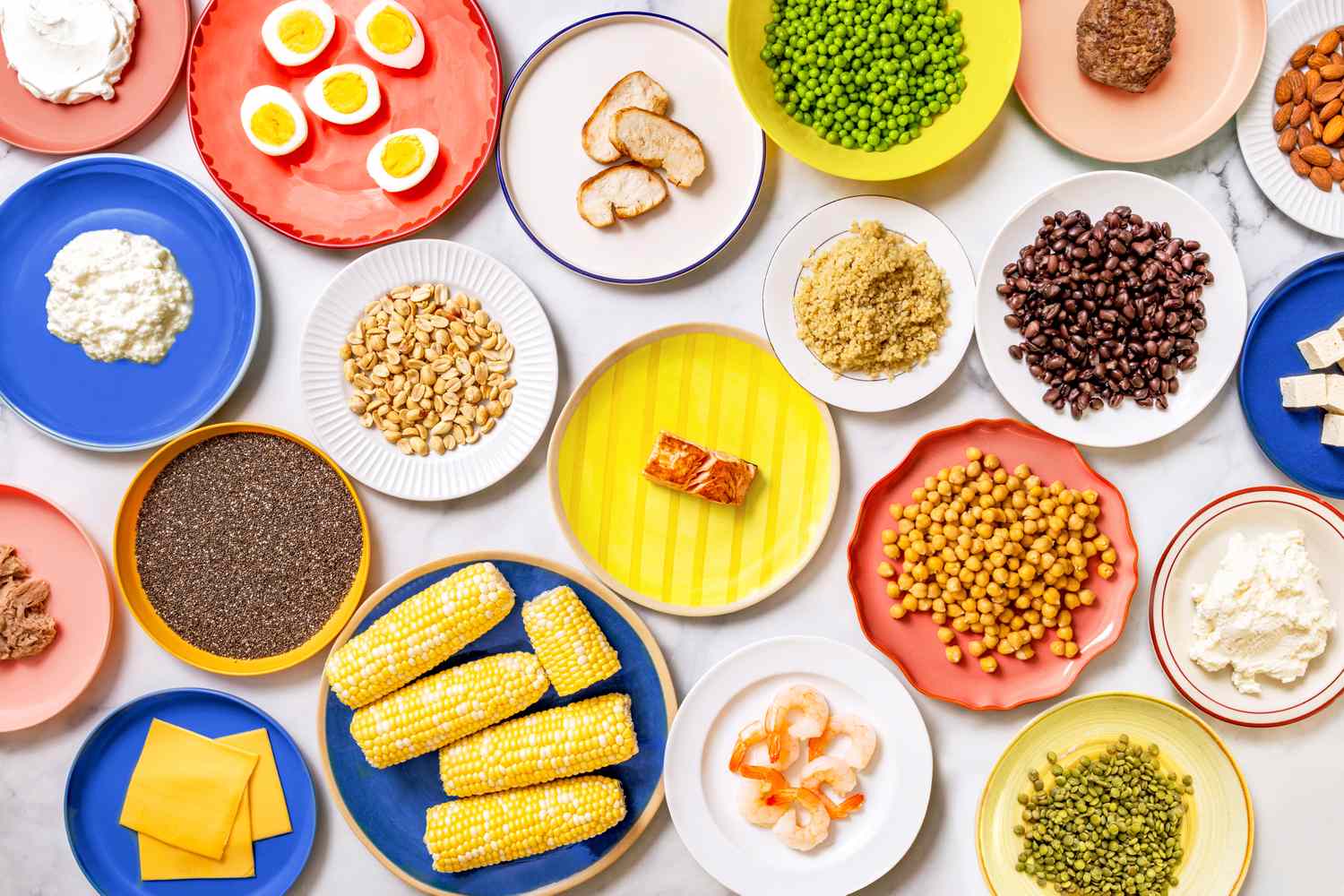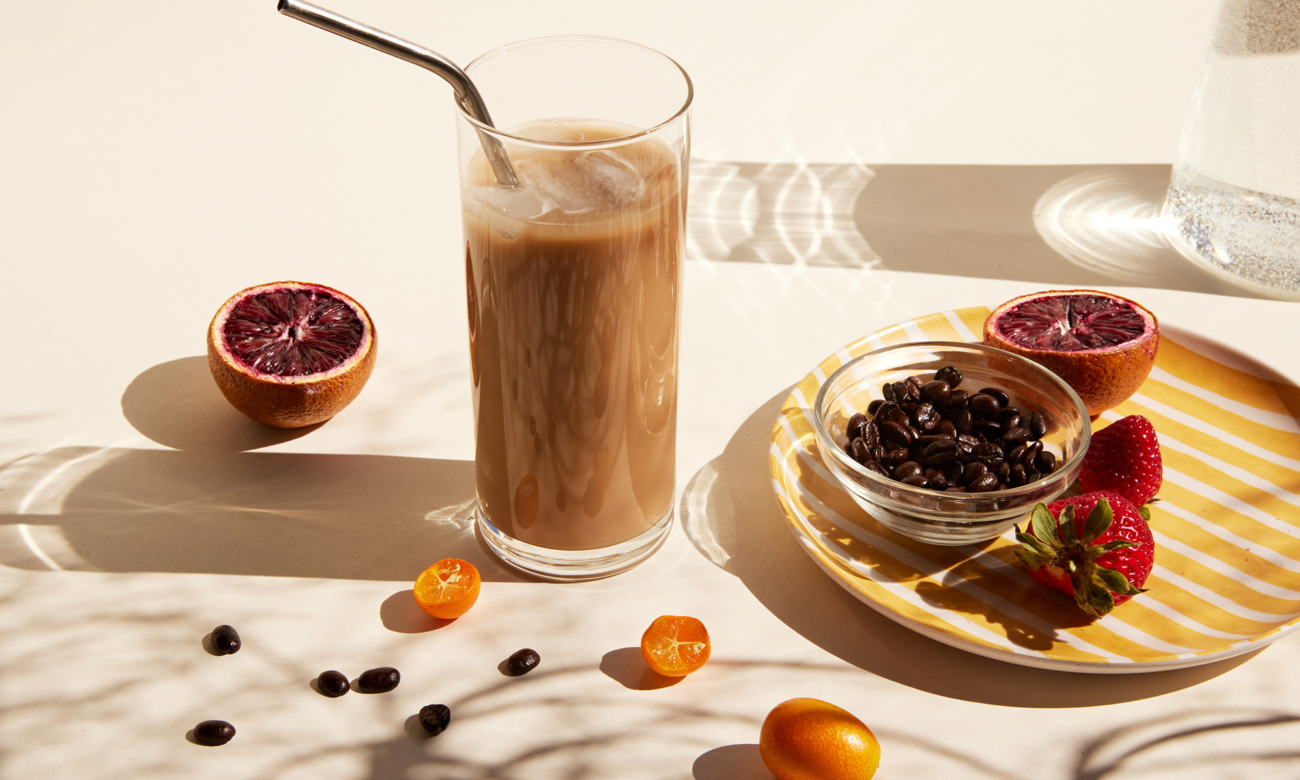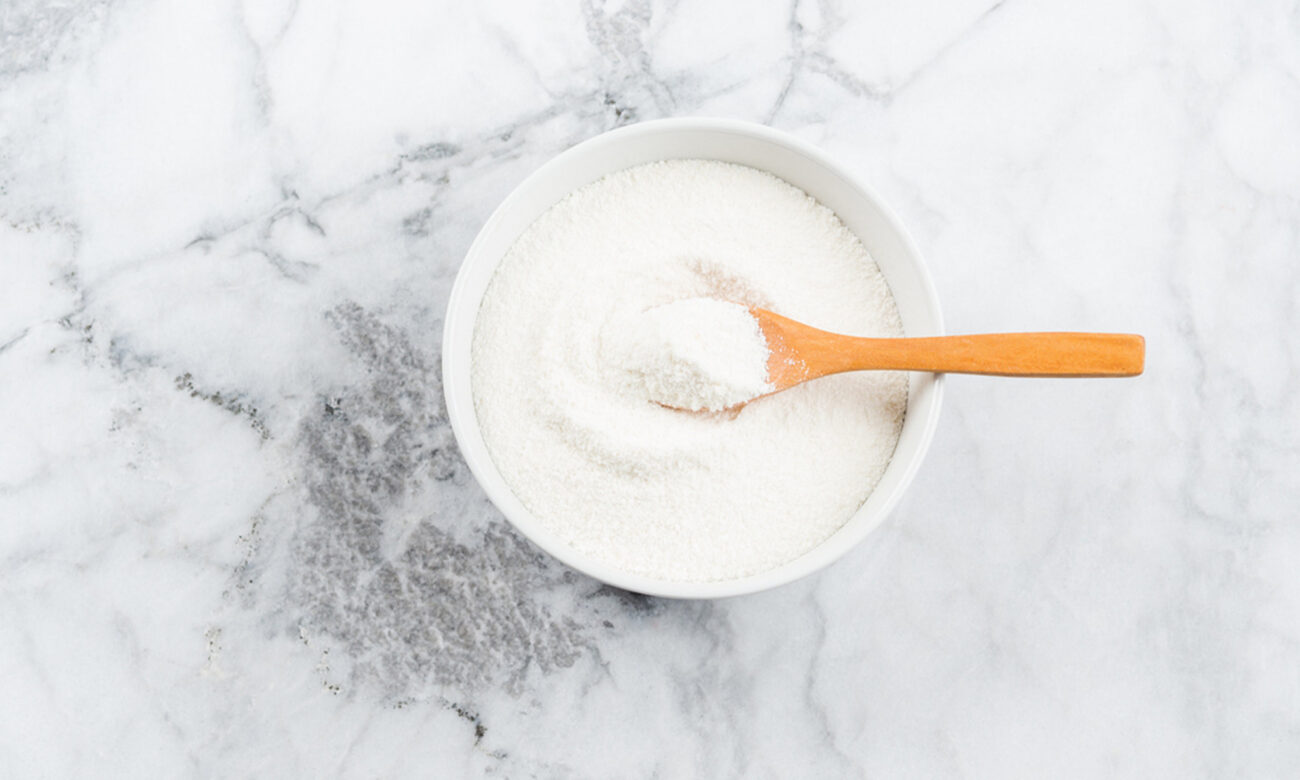Blog
What Does 15 Grams of Protein Look Like in Various Foods?

- Protein supports muscle growth, repairs tissues and aids in the production of enzymes and hormones.
- There are many ways to incorporate protein into your diet from both animal- and plant-based sources.
- Daily protein needs vary based on factors such as age, activity levels and health conditions, so talk to a registered dietitian for individualized advice.
Protein is a vital nutrient that serves as a powerhouse for your body. It not only helps keep you feeling full but also supports the growth and maintenance of muscles, blood vessels, skin, hair and nails. It also plays a crucial role in the production of hormones and enzymes, ensuring your body functions efficiently. Protein is found in a variety of foods, including meat, poultry, seafood, dairy, beans, nuts and whole grains. Adults typically need at least 46 grams (g) of protein per day, but this varies depending on how many calories you eat each day. Your protein needs are also dependent on your age, activity level, whether you are pregnant and other factors that can result in you needing much more than the standard recommendation. Learn exactly how much protein you need to eat every day.
If you eat a balanced diet, you are likely getting the daily required amount without much difficulty. A standard 3-ounce chicken breast has about 26g of protein in it, which is more than half the minimum recommendation. But despite the fact that most people get enough protein, it remains a popular macronutrient to focus on. To make it easier for you to eat up, we looked at what a serving of protein looks like and how much you’re getting from different sources.
Chicken Breast
Abbey Littlejohn
2.4 ounces (oz) cooked = 15g protein
Chicken is a fantastic source of lean protein, making it an excellent addition to any balanced diet. Packed with essential nutrients like B vitamins, phosphorus and selenium, it is a nutritional powerhouse. What’s great about chicken is how versatile and cost-effective it is; it can be grilled, baked, or added to countless recipes, making it easy to include in meals. Whether you’re looking to build muscle or simply enjoy a satisfying and healthy food, chicken is a smart choice.
Salmon
Abbey Littlejohn
2.4 oz cooked= 15g protein
Salmon is one of the healthiest fish you can eat. It’s loaded with omega-3 fatty acids, which are good for your heart, brain and skin. Additionally, salmon is an excellent source of high-quality protein, essential for muscle repair and growth. It also contains important vitamins like B12 and D, which support energy levels and bone health. Including salmon in your diet may help reduce inflammation and support your health in many other ways.
Shrimp
Abbey Littlejohn
2.6 oz cooked = 15g protein
Shrimp provides high-quality protein while being low in calories and fat. Additionally, shrimp are packed with essential nutrients like selenium, iodine and B12, all of which contribute to overall health. To prepare shrimp, simply sauté them with olive oil, garlic and your favorite spices for a quick and delicious meal. You can also toss them into pasta, salads or stir-fries for a versatile addition to your dishes. Their quick cooking time makes them perfect for busy weeknight dinners.
Eggs
Abbey Littlejohn
2.4 large eggs = 15g protein
Eggs are a healthy vegetarian protein source. When you think of how much protein is in an egg, you might think of the egg white first. While lots of protein advocates reach for egg whites, the yolk also contains protein and houses many key nutrients, like choline, a nutrient that supports brain health.
Ground Beef (80/20)
Abbey Littlejohn
3.1 oz cooked patty = 15g protein
80/20 ground beef strikes the great balance between flavor and nutrition. The 80% lean portion provides ample protein to support muscle growth and repair. Meanwhile, the 20% fat content adds rich taste and juiciness, making dishes super satisfying. It’s versatile and can be used in a variety of meals, from burgers to pasta sauces, and it is widely available and budget-friendly, making it an accessible option for many households.
Low-Fat Cottage Cheese
Abbey Littlejohn
5.1 oz = 15g protein
Cottage cheese is packed with high-quality protein that helps keep you full and supports muscle growth and repair. Plus, it’s incredibly versatile: You can enjoy it on its own, mix it into smoothies or add it to salads and snacks. Cottage cheese is also low in fat (if you choose lower fat percentage options like nonfat, 1% or 2%) and contains important nutrients like calcium. Best of all, it’s lower cost, easy to find and works for many different kinds of meals. Pro tip: Try adding it to a baked potato. It’s so good!
Canned Tuna
Abbey Littlejohn
2.8 oz = 15g protein
Canned tuna is a staple in many households. It’s cost-effective and easy to find, offering a generous amount of nutritional value while aligning with many budgets. Packed with key nutrients like omega-3 fatty acids and vitamins, it supports heart and brain health while satisfying your hunger. Just remember, different types of tuna might have varying levels of mercury, which can be a concern because high mercury intake is harmful to human health, potentially affecting the nervous system. Skipjack tuna typically has lower mercury levels compared to other varieties, making it a safer option for regular consumption.
Ricotta Cheese
Abbey Littlejohn
6.7 oz = 15g protein
Ricotta cheese offers a creamy texture and mild flavor, making it easy to include in both savory and sweet dishes. It’s packed with high-quality protein that supports muscle repair and overall health. Try using ricotta cheese as a rich and creamy base for pancakes or in smoothies for a creative and flavorful twist.
Firm Tofu
Abbey Littlejohn
2.8 oz = 15g protein
Firm tofu is packed with plant-based protein, making it a versatile option for those following a vegetarian or vegan diet. It easily absorbs flavors from marinades and spices, so you can customize it to suit any dish. Plus, it’s incredibly easy to cook; whether you pan-fry, bake or grill it, it always turns out delicious. Not to mention, it is lower cost and widely available, making healthy eating more accessible. Lastly, firm tofu is also a natural source of iron and calcium, adding even more nutritional benefits to your meals!
Cheddar Cheese
Abbey Littlejohn
2.3 oz = 15g protein
Sliced cheddar cheese offers about 7 grams of protein per ounce, making it a quick way to help meet your daily protein goals. It’s an excellent option for making sandwiches, pairing with crackers, or topping on a salad. Full of calcium as well, cheddar cheese supports healthy bones and teeth while keeping you feeling full.
Canned Chickpeas
Abbey Littlejohn
7.4 oz = 15g protein
Chickpeas aren’t just a protein source. Sure, they provide high-quality protein. But they are also a natural source of antioxidants, which help combat oxidative stress and promote cellular health. Their impressive fiber content aids in meeting your nutritional needs, supporting digestive health and improving gut microbiota. Chickpeas also contribute to better heart health. Versatile and nutrient-dense, they enhance a variety of dishes while offering significant health benefits.
Low-Fat Greek Yogurt
Abbey Littlejohn
5.3 oz = 15g protein
Low-fat strained-style yogurt—such as Greek yogurt—is packed with protein. It’s creamy, delicious and available in a variety of flavors. It is also rich in probiotics, supporting healthy digestion and gut health. Whether enjoyed on its own, blended into a smoothie or as a base for savory dips, it’s an incredibly versatile food.
Depending on which type of yogurt you pick, the protein content will vary. Greek yogurt typically contains more protein compared to regular yogurt due to its straining process.
Quinoa
Abbey Littlejohn
3.8 oz = 15g protein
Quinoa is a grain that also happens to give your meals a protein boost. It’s also a complete protein, meaning it contains all nine essential amino acids that the body cannot produce on its own. This gluten-free grain is easy to prepare and pairs excellently with vegetables, meats or sauces, making it a great addition to any meal. Quinoa is also a source of fiber, adding to the laundry list of why dietitians love it. Its mildly nutty flavor and chewy texture make it a tasty and nutritious base for diverse dishes.
Lentils
Abbey Littlejohn
2.2 oz cooked = 15g protein
Lentils are a powerhouse of plant-based protein, with approximately 18 grams of protein per cup when cooked. They’re incredibly budget-friendly, accessible and easy to prepare, making them a favorite for healthy eating. Aside from protein, lentils are a source of iron and folate, which are essential for energy production and overall health. They blend seamlessly into soups, stews, salads or even as a meat substitute in recipes like burgers or tacos. Their hearty, satisfying nature makes them an excellent option for vegetarians, vegans or anyone looking to include more plant-based meals in their diet.
Almonds
Abbey Littlejohn
2.5 oz = 15g protein
Just a small handful of almonds packs a solid protein punch, along with healthy fats and fiber that help keep you feeling full and satisfied. They’re also plant-based. One of the best things about almonds is their convenience. Unlike cooking up a piece of chicken or preparing a protein shake, almonds are ready to eat right out of the bag. They’re perfect for snacking on-the-go, tossing into a salad or adding to your morning oatmeal. With their crunchy texture and nutty flavor, they’re delicious and versatile in a variety of dishes.
Beyond protein, almonds are packed with other nutrients that make them a powerhouse food. They provide a healthy dose of vitamin E, which supports skin health and your immune system. They’re also rich in magnesium, which helps with muscle function and energy metabolism, making them excellent for post-workout recovery.
Our Expert Take
When it comes to your protein intake, variety is the name of the game. There are several foods that are good sources of protein, but they offer other health benefits as well. Consuming numerous different foods to meet your protein needs is the best way to help support your nutritional needs and overall health. Daily protein requirements vary based on factors such as age, activity levels, and individual health conditions, so meet with a registered dietitian to get more individualized advice.












